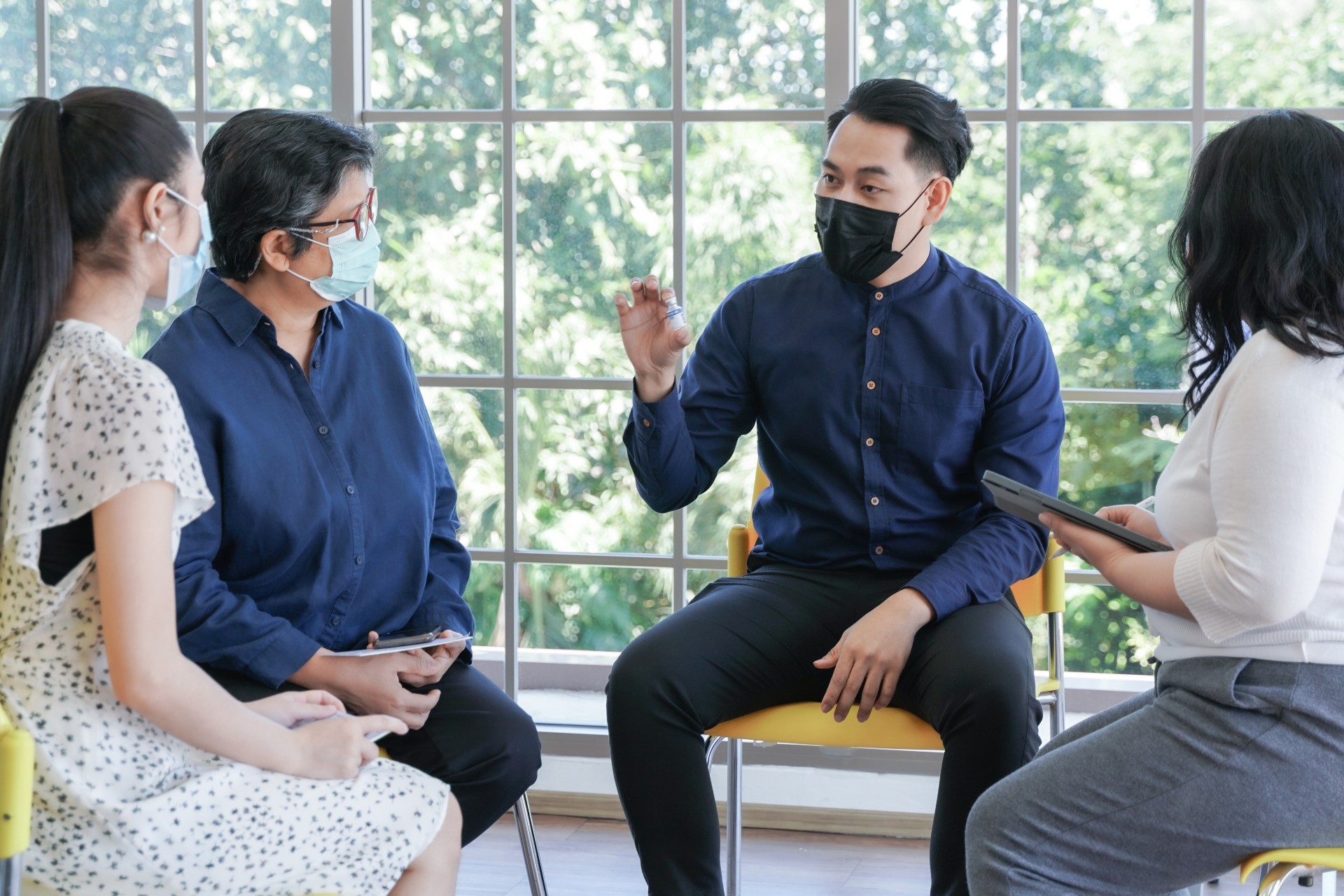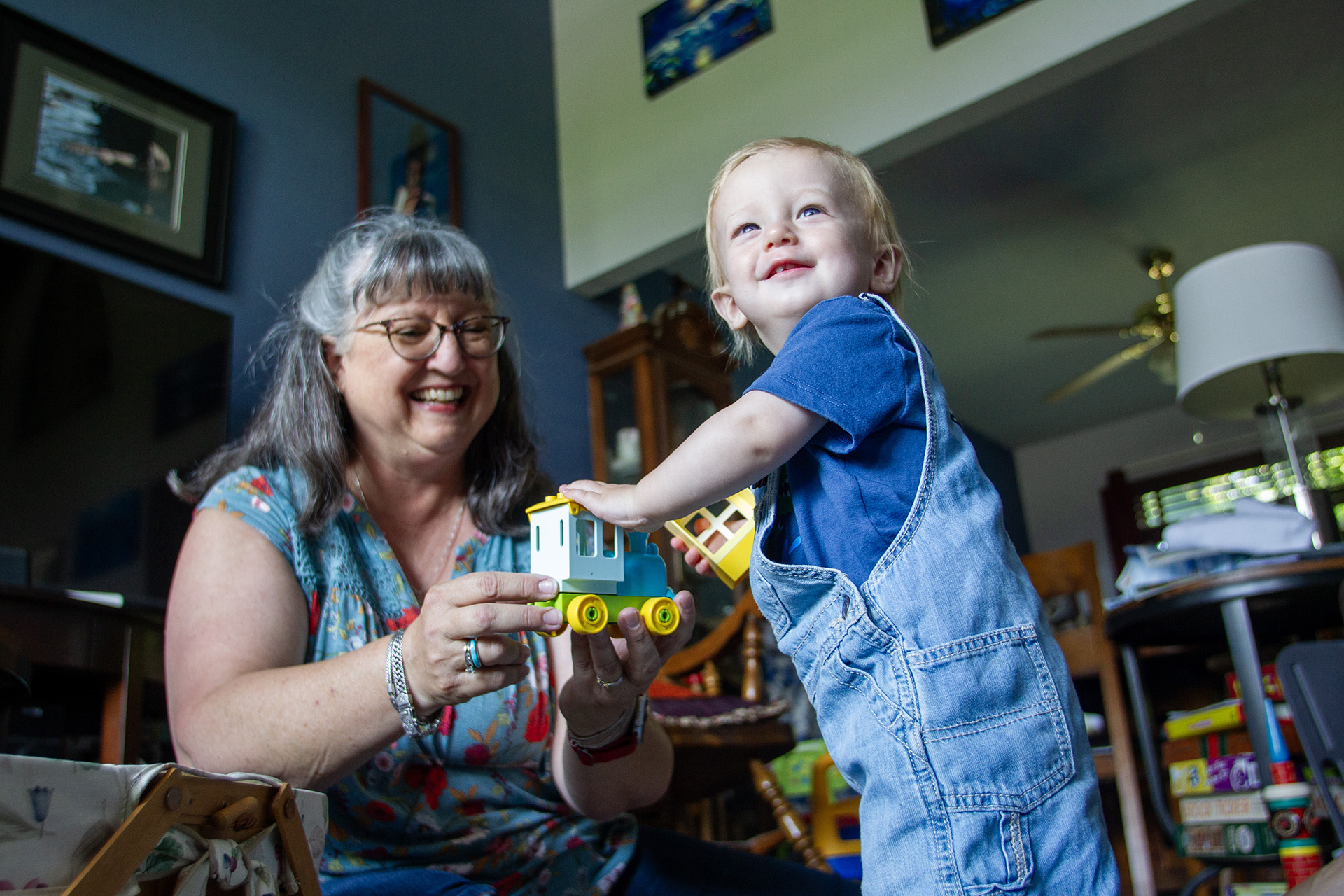During the pandemic, a mom of 3, who asked not to be named, faced daunting mental health challenges. A year into the public health crisis, she started to see changes in herself and her children.
“I noticed a difference in myself and my kids because of the isolation and staying home,” she said. “I became worried when I saw my kids spending more time on YouTube watching unhealthy videos. I felt lost and knew I needed help.”
This parent is a member of the Asian Pacific Islander (API) community — a group disproportionately affected by mental health stigma. According to the U.S. Department of Health and Human Services, members of this community have the lowest help-seeking rate of any racial group, with only 23.3% of adults with a mental illness seeking treatment in 2019.
“The collective trauma of the pandemic has disproportionately impacted our most vulnerable patients — particularly those who are members of communities where there is significant stigma about seeking mental health care,” said Maria Koshy, MD, director of Regional Mental Health Administration and chair of chiefs of Psychiatry.
Stigma among communities of color
Stigma is a significant barrier to seeking mental health services in the API community, and other diverse communities, and its basis is complex, said Carol Chan-Lau, LMFT, a Kaiser Permanente outpatient mental health therapist.
“Mental health stigma is strongly rooted in history when people suffering illness used to be deemed ‘crazy,’” said Chan-Lau.
There is also a strong cultural component attached to stigma, she explained.
“In the Asian community families often feel shame or embarrassment if a family member is unproductive or dysfunctional due to a mental illness.”
Shafique Rehman, LMFT, behavioral health therapist at Kaiser Permanente Santa Clara, added that the API community feels they are judged as a cultural group, not as individuals.
“If one person in the community has a mental illness, many feel it reflects on the entire API culture,” he said.
The pandemic’s impact
The pandemic has shed light on mental health challenges, particularly among communities of color. Talking about mental health has become easier and more acceptable, Rehman said.
“People seem to have more understanding and acceptance of mental illness because we all shared this common experience.” Carol Chan-Lau
“My patients are more able to verbalize what they are experiencing,” he said. “Instead of masking their depression, stress, or anxiety in physical ailments, they admit they are suffering emotionally.”
Chan-Lau said the pandemic allowed people to understand they are not alone.
“People seem to have more understanding and acceptance of mental illness because we all shared this common experience,” she said. “More information is being shared on mental health and how to get help than ever before.”
This is vital, Rehman said, because stigma can perpetuate illness to a dangerous degree.
Asking for help
After the mom saw worrying symptoms in her youngest daughter — loss of appetite, impaired eyesight due to increased screentime, and withdrawal — she knew it was time to get help. As a child, she witnessed her father suffer depression and never seek assistance. She wanted to break the cycle.
She sought help through her community clinic, Asian Health Services (AHS), an Oakland-based nonprofit that provides medical and mental health care to low-income API community members in the East Bay. Last year Kaiser Permanente Northern California awarded a $100,000 grant to AHS.
Kaiser Permanente has funded AHS for many years, including in the last 5 years a total of $250,000 to increase access to quality behavioral health serves among the API community in Alameda County.
“As a care delivery system, Kaiser Permanente has taken concrete steps to increase the diversity of our training programs, in addition to shaping our care delivery pathways to meet the needs of our ethnically, culturally, and racially diverse patient population,” said Dr. Koshy.
The mom enrolled in a parenting class at AHS where her family worked with a mental health provider. “The workshop helped my parenting skills and how I discipline my daughters, which has led to a better relationship with them. I am less worried,” she said.
In seeking help, she overcame her fear of stigma.
“I have learned methods to cope with my depression. There are many ways to perceive things positively. Now, when I see others suffering with mental health in my community, I encourage them to seek help.”
Learn about Kaiser Permanente’s mental health services.




